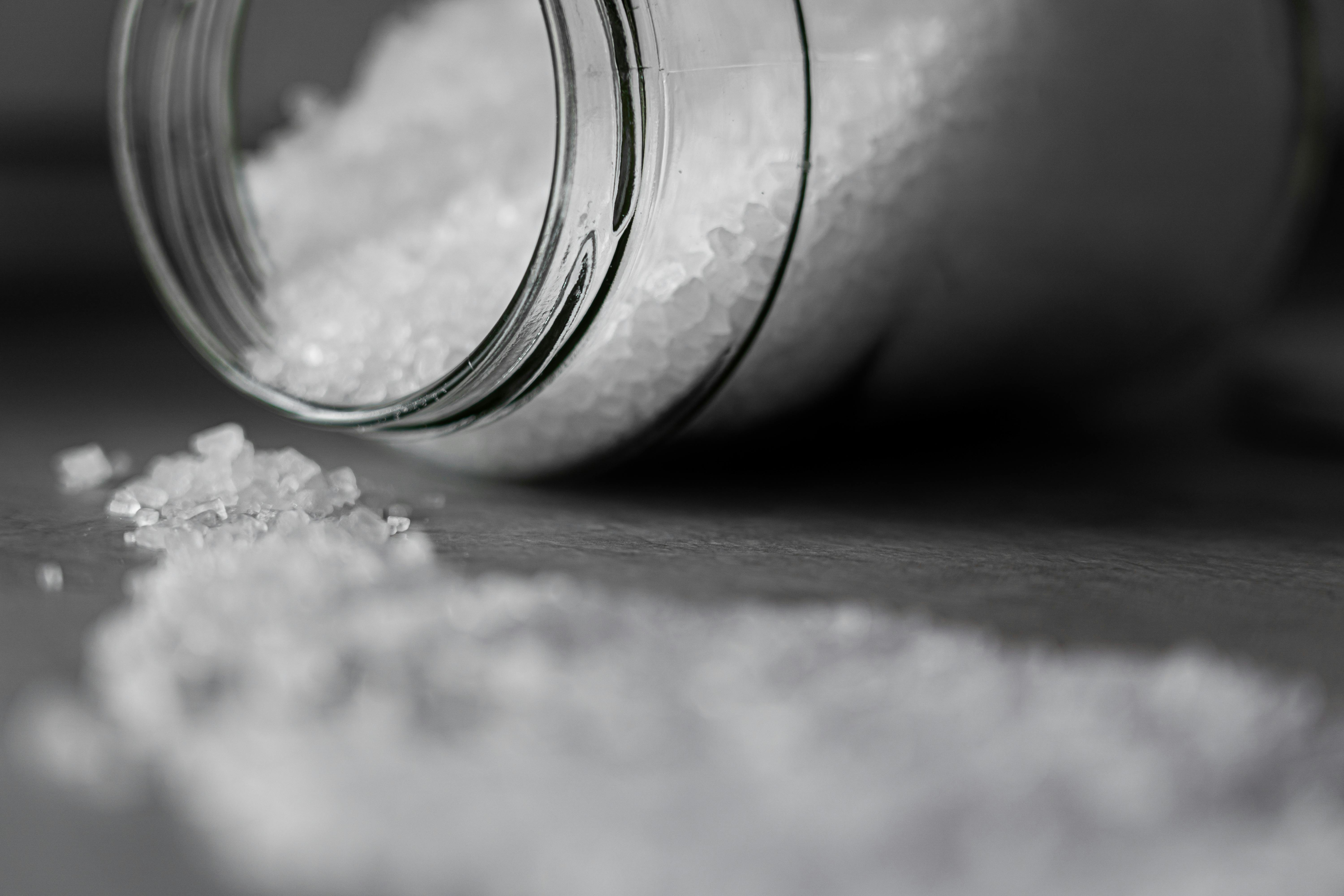How and Why to Avoid MSG: Protecting Your Health from Hidden Dangers
Posted by Nilgun Auriemma on Nov 9th 2024
If you’ve ever walked down the aisles of a grocery store or ordered food at a restaurant, you’ve likely come across the term "MSG" or monosodium glutamate. Originally designed as a flavor enhancer, MSG has been widely used in processed foods to boost taste and make products more addictive. However, the reality is that MSG carries serious health risks that go far beyond a mere flavor boost. Let’s dive into the dangers of MSG, why it’s so important to avoid it, and how to identify hidden sources of this harmful substance in your food.

What Is MSG and How Does It Work?
Monosodium glutamate (MSG) is a type of salt derived from glutamic acid, an amino acid naturally found in foods like meat, cheese, and some vegetables. It’s added to processed foods because it enhances the savory, umami flavor, making it irresistible. While it may seem like a harmless additive, research has shown that MSG is far from benign.
When you consume MSG, it works as an excitotoxin in your body. Excitotoxins are substances that overexcite your cells to the point of damage. In this case, MSG overstimulates brain cells, potentially causing lasting damage. It can cross the blood-brain barrier and disrupt normal brain function, leading to a variety of neurological effects. In short, MSG doesn’t just impact the flavor of your food—it impacts your brain in dangerous ways.
The Health Risks of MSG
While the food industry may claim that MSG is safe, numerous studies have shown that it can have serious health consequences, including:
- Neurological Damage: MSG is known to cause brain lesions and has been linked to irreversible damage in the brain. This damage is due to its excitatory effects on brain cells, which can cause neurodegeneration.
- Addiction: MSG can make you crave certain foods, contributing to unhealthy eating patterns. The way it activates your brain's pleasure centers can cause addiction-like symptoms, making you want to reach for more processed foods that contain MSG.
- Increased Risk of Neurological Disorders: Studies have shown a connection between MSG consumption and conditions like ADHD (Attention Deficit Hyperactivity Disorder), autism spectrum disorders, and other neurological disorders. The neurological effects of MSG can alter brain function and development, especially in young children.
- Obesity: MSG has been linked to weight gain and obesity. It’s believed to interfere with the body’s natural appetite regulation mechanisms, leading to overeating. This is just one of the reasons why MSG is implicated in the global obesity epidemic.
- Other Symptoms: MSG has been associated with a variety of other health issues, including headaches, nausea, chest pain, and flushing. Some people are particularly sensitive to MSG, and these symptoms can appear after consuming foods containing the additive.

MSG and the Labeling Game: What You Need to Know
One of the most troubling aspects of MSG is how difficult it is to avoid. Many foods can carry the label "NO MSG," yet still contain ingredients that are just as harmful. This is because MSG is often hidden under different names in food ingredient lists. If a product does not contain the words "monosodium glutamate," it might still contain MSG in another form. These are some of the common ingredients that contain MSG or are excitotoxins:
Food Additives That ALWAYS Contain MSG:
- Monosodium Glutamate (MSG)
- Hydrolyzed Vegetable Protein
- Hydrolyzed Protein
- Hydrolyzed Plant Protein
- Plant Protein Extract
- Sodium Caseinate
- Calcium Caseinate
- Yeast Extract
- Textured Protein (including TVP)
- Autolyzed Yeast
- Hydrolyzed Oat Flour
- Corn Oil
- Gelatin (including supplements or vitamins in gelatin capsules)
- Autolyzed Plant Protein
- Glutamate
- Glutamic Acid
Food Additives That FREQUENTLY Contain MSG:
- Malt Extract
- Malt Flavoring
- Bouillon, Broth, Stock
- Flavoring (Natural, Beef, Chicken, Pork, Smoke)
- Seasoning, Spices
- Vegetable Gum
- Torula Yeast
- Modified Food Starch
- Annatto
- Pectin, Carmel Flavoring
- Enzyme-modified "anything"
- Ultra-pasteurized "anything"
- Fermented "anything"
- Protease, Dry Milk Solids, Milk Powder
- Dough Conditioners
- Cornstarch
- Citric Acid (when processed from corn)
Food Additives That MAY Contain MSG or Excitotoxins:
- Carrageenan
- Enzymes
- Soy Protein Concentrate, Soy Protein Isolate, Soy Sauce, Soy Extract
- Whey Protein Concentrate, Whey Protein, Whey Protein Isolate
- Rice Syrup, Brown Rice Syrup
How to Avoid MSG
To protect your health, it’s crucial to be vigilant about what you eat and read food labels carefully. Here are some tips on how to avoid MSG:
- Read Ingredients: Always read food labels. If the ingredients list contains any of the additives listed above, it likely contains MSG or other excitotoxins, even if the label says "No MSG."
- Opt for Whole Foods: Whole, unprocessed foods like fresh fruits, vegetables, meats, and legumes are naturally free of MSG and other harmful additives. Choose organic and minimally processed foods whenever possible.
- Cook at Home: Preparing your meals from scratch gives you full control over what goes into your food. You can season your dishes with herbs, spices, and natural flavorings rather than relying on MSG-laden sauces and pre-packaged meals.
- Be Cautious with Sauces and Condiments: MSG is frequently found in sauces like soy sauce, salad dressings, BBQ sauce, and marinades. Always check the label and opt for homemade versions or ones that use whole ingredients.
- Choose Fresh over Processed: Many packaged and frozen foods, from chips to frozen dinners, contain hidden MSG. These foods are also typically high in unhealthy fats and sugars, which can contribute to various health issues like obesity.

Final Thoughts: The Hidden Dangers of MSG
In conclusion, while MSG might make your food taste better, the long-term health risks far outweigh the temporary satisfaction it provides. From neurological damage and addiction to its role in the obesity epidemic, MSG has the potential to wreak havoc on your health. By being mindful of the ingredients in your food and opting for whole, unprocessed options, you can protect your brain, body, and overall well-being.
Start reading food labels carefully, and choose whole foods as much as possible. Your body—and your brain—will thank you for it!
Disclaimer
The information provided in this blog post is not intended to diagnose, treat, or cure any medical conditions. Always consult with a healthcare professional before making any significant changes to your diet or lifestyle.
